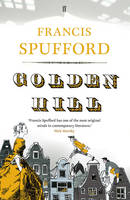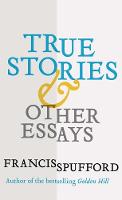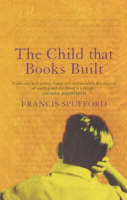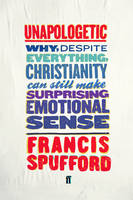WORD Christchurch is bringing Francis Spufford to Christchurch, next Wednesday 7 March, 7pm at the salubrious venue of The Piano. Francis is in New Zealand as a guest of the New Zealand Festival Writers and Readers Events. He has written seven books, on topics as diverse as science, history, theology, and politics. The Child That Books Built was a love letter to literature, and his first novel Golden Hill won the Costa Award for Best First Novel - it's "a rollicking, suspenseful tale set in mid-18th century Manhattan, the novel pays loving tribute to the literature of that era". Francis Spufford appears in conversation with Chris Moore.
INTERVIEW
Joyce is heading along to the session, and asked Francis some choice questions:
I read in a previous interview that you wished you’d had the gumption to write fiction earlier in your career. What held you back? And did you ever feel pigeon-holed by your publishers and readers?
The short answer is cowardice. I was and am a great believer in the scope for non-fiction to do adventurous things, revealing things. I never felt pigeon-holed or limited by non-fiction. But still, it seems to me that fiction draws much more directly on the writer’s understanding of human character and human behaviour. When you write a novel, you dip your pen in your own psyche, inevitably. You have to. And for a long time I was afraid that I didn’t know enough to write imaginary people without making a fool of myself.
The sex scene in Golden Hill was particularly squelchy, torrid and memorable! Traumatising as a reader, how on earth did you manage to conceive the scene and write it?!
Good! I wanted it to be clear that both parties were doing something completely disastrous, carried away by different kinds of fear: but which was very pleasurable to them both in the moment, in a greedy kind of way. I wanted the reader to be peeking through their fingers going ‘No! No!’ yet also feeling the gross turn-on of what they were doing. And to this I could bring the pre-Victorian novel’s ability to be a lot lewder than you were expecting, complicated by the grossness being channeled through a very book-dependent narrator who, though mischievous, is really not enjoying themselves at this point. That’s about six literary ambitions for one episode of torrid squelching.
I loved the contrariness, passion and conviction of your youthful characters, especially juxtaposed with the complacency and corruption of New York’s elder figures. Do you see that generational gulf in action in modern society too?
Isn’t it permanent that youth is contrary and passionate and idealistic, and age is complacent and corrupt? (Or at least corrupt-seeming to young people.) Having said that, I do think this is a moment in history when, in the U.K. and the US at least, the fears and the weaknesses of the middle-aged and the old really have led us into stupidities at which young people are rightly gazing with horror - because they’re stupidities at their expense, at the expense of the future. As a fifty-something writer I enjoyed getting to be, temporarily, twenty four-year-old Mr Smith and nineteen-year-old Tabitha.
Golden Hill portrays a young New York and embryonic America, with considerably more time passed do you see the USA as a successful society?
I think America grew up into a reservoir of idealism and principle which the world needs, and has benefited by incalculably. But I think that contemporary America, like the embryonic America Mr Smith visits, is also a culture which is not very self-knowing: a place which, to a dangerous degree, contrives to forget the darkness which has always been the flip side of its virtues.
Quickfire Questions!
Last time you cried?
While watching *Coco* at the cinema.
Book you wish you’d written?
Favourite biscuit?
I’m a slut for the chocolatey ones.
Describe the role of public libraries in 5 words
Portals to past, present [and] future.








Add a comment to: Dip your pen in your own psyche: An interview with Francis Spufford (WORD Christchurch event, Weds 7 March 7pm)